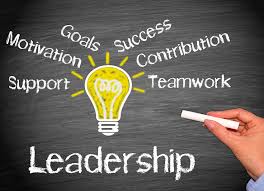
Leadership
Order Instructions:
Prepare for this Discussion by choosing a leader you know and admire. Ideally this will be someone in public health, but it may be a leader in another sector such as business, academia, or health care. Reflect on what you have discovered about him or her in light of the leadership traits and styles you learned about this week.
The purpose of this interview is to discover this person’s “leadership story.” That is, you should ask them how they got where they are, what they value, and any other questions you think would help you identify their strengths and assets as leaders and any challenges they overcame. To help you formulate your interview questions, review this week’s Learning Resources, including the video program on Leadership Models.
Answer the following Questions:
1. Describe the strengths or assets that public health leaders in general need for success in leading in this field, and explain why these attributes are necessary.
2. Briefly describe the leader you interviewed and why you chose him or her.
3. What are the most important lessons you learned about leadership from this interview?
4. To what degree does he or she demonstrate the attributes of effective public health leaders?
Article:
1. George, B., Sims, P., McLean, A., & Mayer, D. (2007). Discovering your authentic leadership. Harvard Business Review, 85(2), 1291-1338.
This article discusses leadership traits and characteristics. It focuses on “authentic” leadership and how leaders developed their leadership abilities.
2. Ancona, D., Malone, T. W., Orlikowski, W. J., & Senge, P. M. (2007). In praise of the incomplete leader. Harvard Business Review, 85(2), 92-100.
This article discusses the analysis of four believed criteria found in all good leaders: sense making, relating, visioning, and inventing. Case studies representing best practices and utilization of each factor are reviewed.
3. Quinn, R. (2005). Moments of greatness. Harvard Business Review, 83(7/8), 740-83.
This article outlines Robert Quinn’s fundamental state of leadership theory. By achieving maximum leadership performance, leaders place themselves in a zen-like or maximum realm of productivity. Once the state is exited, leaders inadvertently have the ability to increase the overall performance of all those in contact with the effort.
4. Goleman, D. (2000). Leadership that gets results. Harvard Business Review, 78(2), 78–90.
This article discusses newly identified field research indicating that effective leaders establish and master a multifaceted approach to leadership to be effective. The six styles of leadership discussed in this article are: coercive, authoritative, affiliative, democratic, pacesetting, and coaching.
Please apply the Application Assignment Rubric when writing the Paper.
I. Paper should demonstrate an excellent understanding of all of the concepts and key points presented in the texts.
II. Paper provides significant detail including multiple relevant examples, evidence from the readings and other sources, and discerning ideas.
III. Paper should be well organized, uses scholarly tone, follows APA style, uses original writing and proper paraphrasing, contains very few or no writing and/or spelling errors, and is fully consistent with doctoral level writing style.
IV. Paper should be mostly consistent with doctoral level writing style.
SAMPLE ANSWER
Leaders need strengths and assets for success in leading their fields. These attributes are crucial as they differentiate them from others and set them apart from the ordinary to extra-ordinary people. Born in Stowe and started out his first business venture as a student paper, Richard Branson is a remarkable role model to millions. As a school dropout at the age of 16 and from a humble beginning, Richard grew to become a prominent and one of the most sought after entrepreneurs and leaders of our times. Being the figurehead of Virgin Atlantic airways, he is the mind behind more than 200 different businesses linked to the title virgin group (Dearlove, 2007).
Richard Branson is a charismatic and transformational leader in every aspect. He is visionary, an agent of change and loves investing in people. For him, people are the greatest assets and it is for the value he has placed on people that they have greatly rewarded him.
The most important lessons I learnt about his leadership from this interview is that leadership is inborn. You can mould leaders but cannot make them like George et al. (2007). The most successful leaders are transformational leaders like Branson. They posses wisdom and capabilities beyond studies that drive them to excel in all they put their mind to do.
Branson demonstrates the attributes of an effective public leader to a large extent. Like the trait, theory of leadership describes leaders and effectiveness, Branson stands out as an exceptional leader who gets results (Goleman, 2000). He is a high achiever with high ambition levels, is driven by motivation, values honesty and integrity, self-confident, has wisdom coupled with cognitive ability, emotional stability and business acumen.
References
Dearlove, D. (2007). The Richard Branson Way, Wiley & Sons, Chichester, UK
George, B. Sims, P. McLean, A. & Mayer, D.(2007). “Discovering your authentic leadership,” Harvard business review, 85(2), 1291-1338
Goleman, D. (2000). “Leadership”
We can write this or a similar paper for you! Simply fill the order form!




